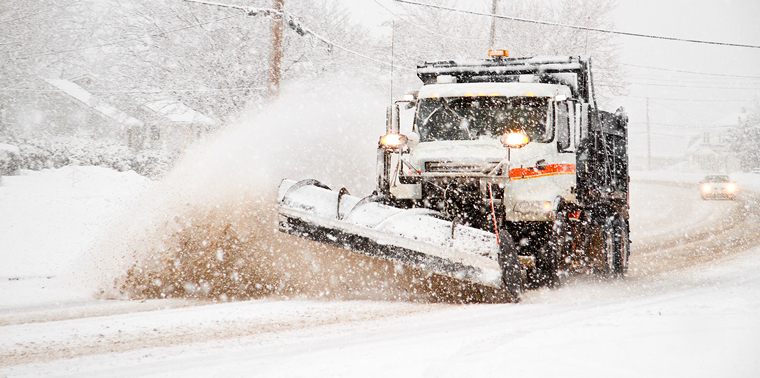
Rock salt has been used for decades to de-ice and cure the roads of all icy patches during the harsh winter seasons, but unfortunately, it looks like it’s reign as the favorite de-icer choice will soon be over. In more recent years, sugar beet products have been slowly making their way onto the market, with a number of North American transportation companies opting to make the change.
Considering salt has done the job for years and years, people haven’t thought to look for another option, until more recent years. But logically, it’s probably not the best idea to throw salt all over the sidewalks and streets without considering the implications it has on the environment.
Most people know that when plants are exposed to too much salt, they usually die, which is why throwing salt all over the place leaves the ground and the soil unfit for plant growth as well. And in that same light, houses and other types of structures that are situated by the sea suffer corrosion and metal rusting due to the salt water spray. Even fish that live in freshwater cannot survive in the oceans.
Because of this, areas such as D.C. and Winnipeg, as well as Michigan, have begun looking into using vegetable alternatives to salt as explained by one study after finding “major changes in the Great Lakes ecosystem.”
Winnipeg communications officer Ken Allen explained, “The benefit from using beet-based melting products is that it reduces the chloride loading on infrastructure and the environment, while producing a good quality melting solution.”
It has been found that when ice-melting chlorides are combined with sugar beet extract is much more effective at reducing ice buildup than salt. But apparently beets aren’t the only type of food products that are being used in North America. According to a report from Bloomberg, cheese brine, pickle-juice, and even leftover beer have been used by a number of transportation departments that are looking to lessen the major budget amounts normally given to the purchasing of salt.
The reason why salt works to melt the ice is because the chemical changes created by salt in water requires a lower temperature to freeze than the normal temp level. And when beet extract is combined with 20% chloride, the temperature drops even more, which means that any residual water will turn into ice overnight when the temperatures are truly frigid.
Almost 15 to 17 million tons of rock salt is used to place on U.S. roadways every single year, which sadly contaminates drinking water and waterways. It also leads to the corrosion of plowing equipment, which leads to more deer collisions since they come out to the roads to lick the salt. Often occurring in Wisconsin, the Badger State actually ‘accounts for 40% of the state’s DoT budget.’
Meanwhile, states such as Illinois rely on their education system to reduce the contamination that comes from over-salting.
As explained on Michigan Radio by stream ecologist and director of Illinois RiverWatch, Danelle Haake, “I often see a cup worth of salt on a single sidewalk square, but one cup of salt should be enough to do an entire driveway… depending on your driveway.” Her suggestion is to dissolve less salt in the water then spray it onto the ice.
She also explained that the road salt hazards aren’t limited to just freshwater ecosystems. Sodium chloride has the tendency to degrade bridges, roadways, and even damage trucks and cars, while affecting human health at the same time.
As explained by the Centers for Disease Control and Prevention (CDC), a high-salt diet contributes to high blood pressure, heart disease, and strokes. This also means that those that live near roadways where road salt is used have an increased risk of higher chloride levels in the tap water.
Haake shared, “If you’re drinking tap water with a lot of salt, it’s like eating salty fries all day long.”
The hope is that more transportation departments follow suit and begin using safer, vegetable-based de-icers in the future.
What are your thoughts? Please comment below and share this news!
True Activist / Report a typo


